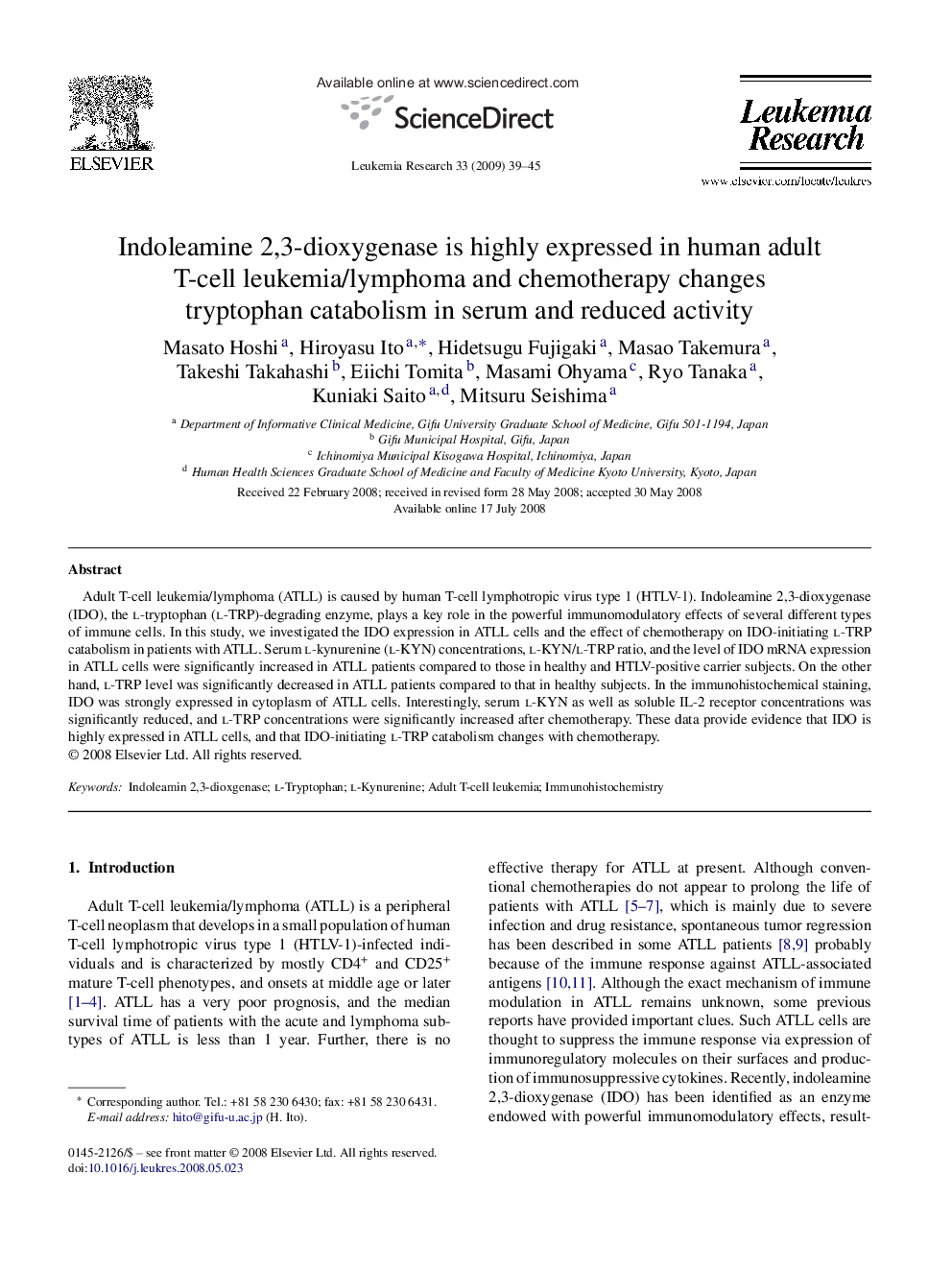| Article ID | Journal | Published Year | Pages | File Type |
|---|---|---|---|---|
| 2138793 | Leukemia Research | 2009 | 7 Pages |
Adult T-cell leukemia/lymphoma (ATLL) is caused by human T-cell lymphotropic virus type 1 (HTLV-1). Indoleamine 2,3-dioxygenase (IDO), the l-tryptophan (l-TRP)-degrading enzyme, plays a key role in the powerful immunomodulatory effects of several different types of immune cells. In this study, we investigated the IDO expression in ATLL cells and the effect of chemotherapy on IDO-initiating l-TRP catabolism in patients with ATLL. Serum l-kynurenine (l-KYN) concentrations, l-KYN/l-TRP ratio, and the level of IDO mRNA expression in ATLL cells were significantly increased in ATLL patients compared to those in healthy and HTLV-positive carrier subjects. On the other hand, l-TRP level was significantly decreased in ATLL patients compared to that in healthy subjects. In the immunohistochemical staining, IDO was strongly expressed in cytoplasm of ATLL cells. Interestingly, serum l-KYN as well as soluble IL-2 receptor concentrations was significantly reduced, and l-TRP concentrations were significantly increased after chemotherapy. These data provide evidence that IDO is highly expressed in ATLL cells, and that IDO-initiating l-TRP catabolism changes with chemotherapy.
